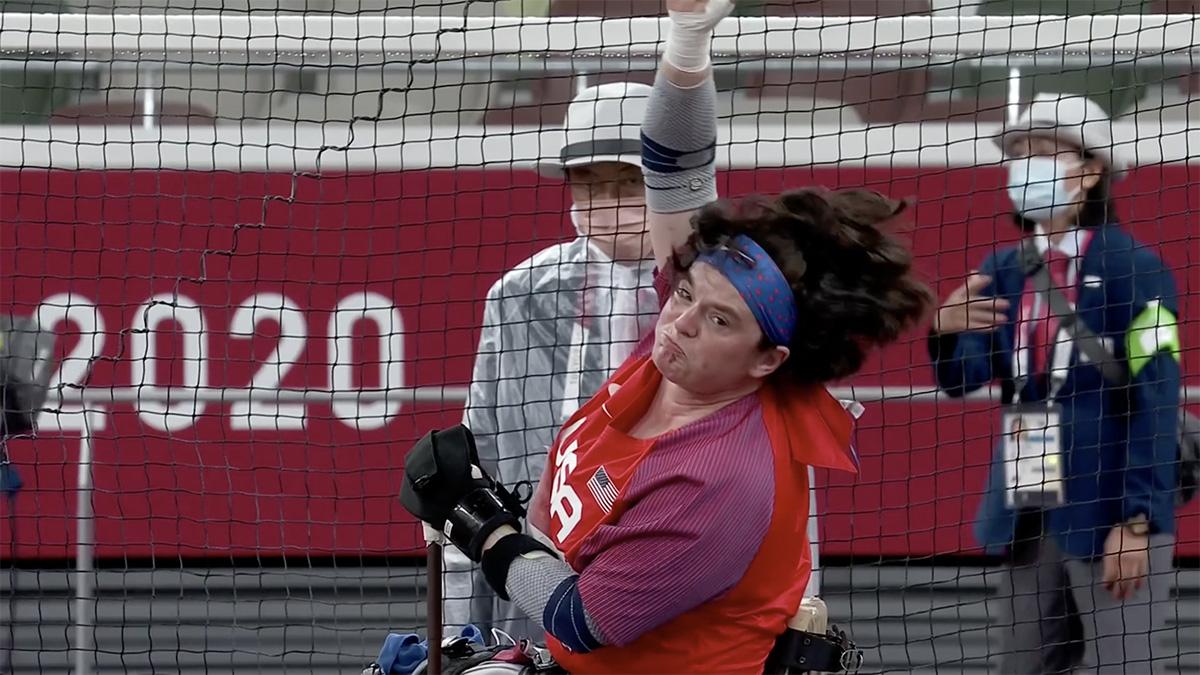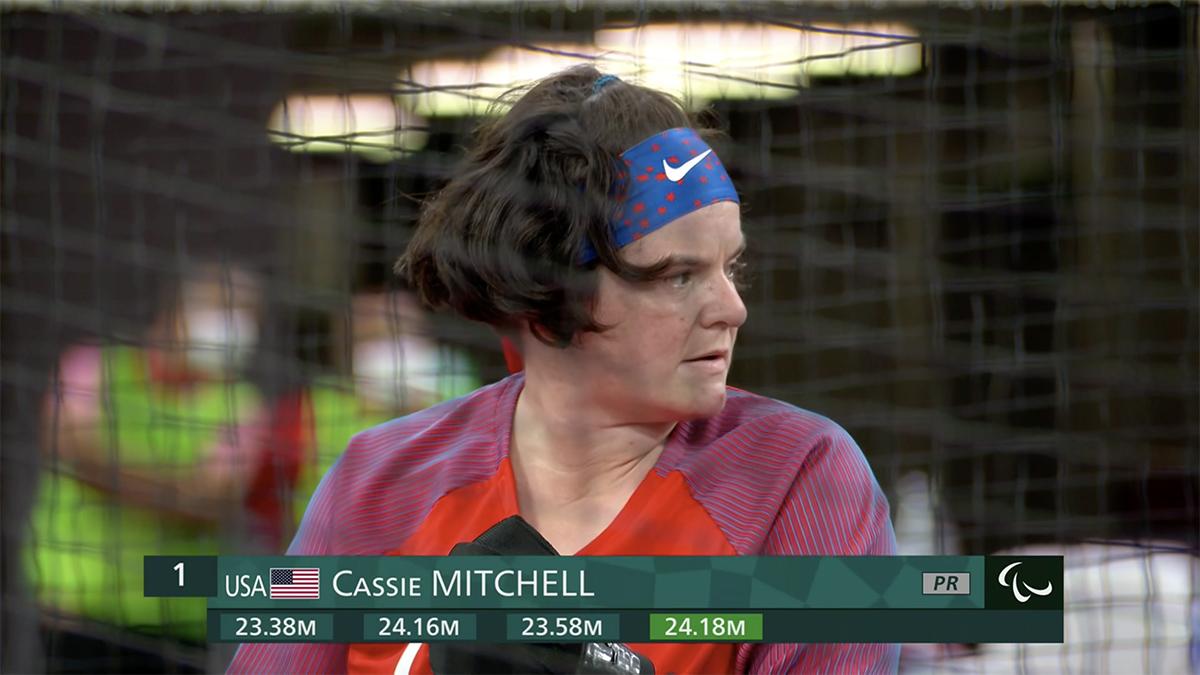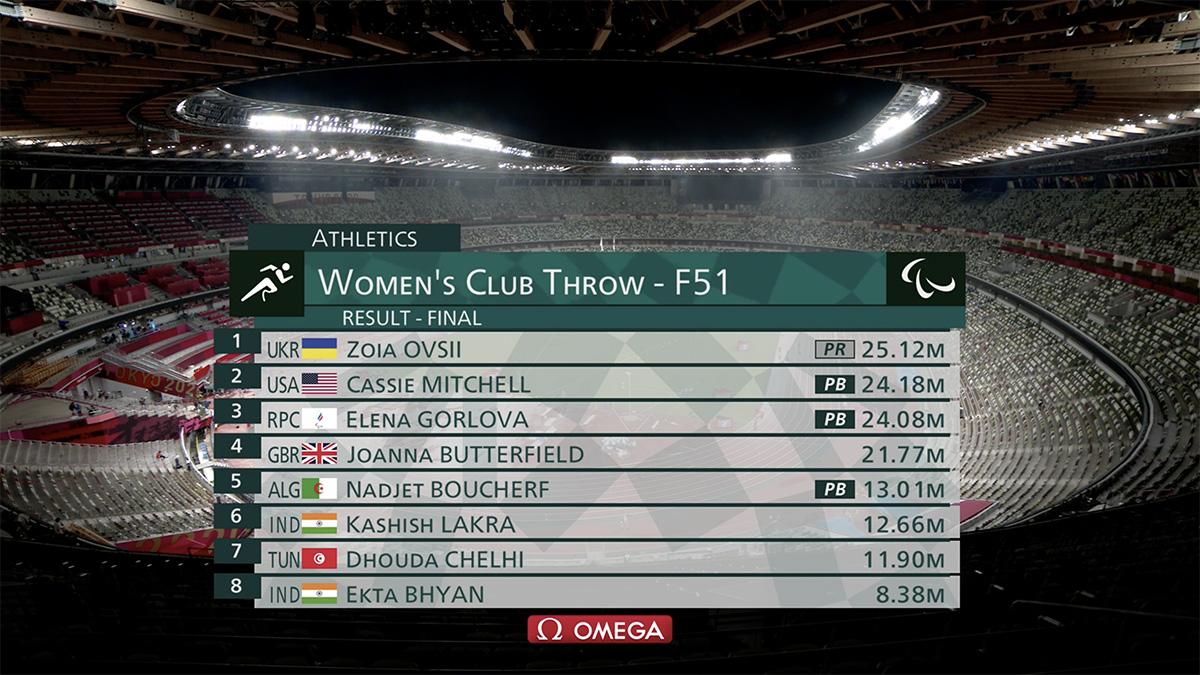It wasn’t easy — it never is, when it comes to the competing against the best in the world. Yet Cassie Mitchell overcame a cancer diagnosis and a yearlong pandemic delay to reach the Paralympic Games podium again.
The biomedical engineering assistant professor has added another silver to her collection of Paralympic medals, placing second in the F51 club throw in Tokyo on Sept. 3.
In fact, it took a Paralympic record to beat Mitchell, who herself threw a Paralympic-record 24.18 meters before world-record holder Zoia Ovsii from Ukraine topped her. Still, Mitchell’s throw was a personal best and will go in the history books as an American record for F51 throwers.
As a result, Mitchell got a portion of what she went to Tokyo to achieve: “I want to see the American flag raised; I want to hear our national anthem. It's the process and what it means to ‘never, never, never give up’ to reach the top, and to compete with honor for the USA,” Mitchell said before the Games. “I'm sentimental and very patriotic when it comes to competing for Team USA.”
Coulter BME Assistant Professor Cassie Mitchell prepares for her fifth attempt during the women's F51 club throw at the Tokyo Paralympic Games Sept. 3. This screenshot of the competition livestream highlights Mitchell's American record throw of 24.18 meters, a personal best that also won her the silver medal.
The Tokyo Games were the third consecutive Paralympics for Mitchell, a faculty member in the Wallace H. Coulter Department of Biomedical Engineering at Emory University and Georgia Tech. Before leaving for Japan, Mitchell said she felt an exceptional competitive fire this year. It paid off with world No. 1 rankings in both discus and club throw in the F51 classification. She finished fourth in discus, where she faced athletes with greater function in their limbs.
Paralympians are grouped into classifications according to their disability. Mitchell is classified as a 51 athlete; they are the most severely disabled athletes who have impairments in all four limbs (the "F" refers to field athletes). Several classifications were combined for her discus event.
That was just the latest shift in Mitchell’s long athletic career. She has shifted sports over the years as the landscape of Paralympic sports changed for quadriplegic athletes with Mitchell’s level of disability. Her events have also changed because of a medical condition: Before the Rio Games in 2016, she was diagnosed with leukemia, a condition for which she is still being treated.
No matter. Before boarding a plane for Tokyo, Mitchell said she had a feeling she’d be strong in club throw.
Turns out, she was right. And she’ll return to Georgia Tech with a silver medal to prove it.
Latest BME News
Jo honored for his impact on science and mentorship
The department rises to the top in biomedical engineering programs for undergraduate education.
Commercialization program in Coulter BME announces project teams who will receive support to get their research to market.
Courses in the Wallace H. Coulter Department of Biomedical Engineering are being reformatted to incorporate AI and machine learning so students are prepared for a data-driven biotech sector.
Influenced by her mother's journey in engineering, Sriya Surapaneni hopes to inspire other young women in the field.
Coulter BME Professor Earns Tenure, Eyes Future of Innovation in Health and Medicine
The grant will fund the development of cutting-edge technology that could detect colorectal cancer through a simple breath test
The surgical support device landed Coulter BME its 4th consecutive win for the College of Engineering competition.










